Virchow Foundation
The Board of Trustees steers the Virchow Foundation’s general policy and strategy, aiming to realise the Foundation’s purpose and mission as laid down in the Foundation Statutes. It is furthermore responsible for the appointment of the Foundation’s Council, the appointment & supervision of the Foundation’s Executive Board and the formation of the Virchow Prize Committee.
Members of the Board of Trustees also advise on how the work of the Foundation and the Virchow Prize can contribute to the Sustainable Development Goal SDG 3 “Good Health and Well-Being” and other health-related SDGs of the United Nations 2030 Agenda.

Prof. Dr. Dr. h.c. mult. Christoph Markschies
Foundation President
President
Berlin-Brandenburg Academy of Sciences and Humanities
Prof. Dr. Dr. h.c. mult. Christoph Markschies studied Protestant theology, classical philology and philosophy in Marburg, Jerusalem, Munich and Tübingen. In 1991, he received his doctorate and habilitated in 1994 in Tübingen. He held professorships in Jena and Heidelberg and followed a call to the Humboldt University Berlin in 2004, serving as president two years later until 2010. Professor Markschies was a fellow of the Institute for Advanced Study in Berlin, Jerusalem and Princeton and a Visiting Fellow of Trinity College, Oxford. He is Professor of Ancient Christianity at the Humboldt University in Berlin and holds various honorary doctorates. Christoph Markschies received numerous prizes and honours, including the Gottfried Wilhelm Leibniz prize, the Federal Cross of Merit (1st class) from German Federal President, Frank Walter Steinmeier, is a member of several distinguished academies in Germany and abroad and serves on various advisory boards of scientific institutions. Professor Markschies has published extensively. He contributes to scientific and public discussions as a columnist. Since 2019, he serves as President of the Berlin-Brandenburg Academy of Sciences and Humanities.
Academic and Professional Career
- Since 2020 President of the Berlin-Brandenburg Academy of Sciences
- 2012-2018 Vice-President of the Berlin-Brandenburg Academy of Sciences
- 2003-2015 Secretary of the Class of Humanities of the Berlin-Brandenburg Academy of Sciences (former Prussian Academy of Sciences)
- 2013 Senior Fellow Martin Buber Society Hebrew University, Jerusalem
- 2010 Visiting Fellow at the Institute for Advanced Study Princeton
- 2009/2010 Stewart Visiting Research Scholar in the Humanities Council, Programm of Jewish Studies, University of Princeton
- 2008/2009, 2013 and 2019 Visiting Fellow, Trinity College, Oxford
- since 2004 Chair of Church History (Ancient Christianity) at the Humboldt University of Berlin
- 2000-2004 Chair of Church History at the Ruprecht-Karls Universität Heidelberg
- 1999/2000, 2005/2006 and 2016/2017 Fellow of the Institute for Advanced Studies of the Hebrew University, Jerusalem
- 1998/1999 Fellow of the Wissenschaftskolleg zu Berlin, Institute for Advanced Study
- 1994-2000 Chair of Church History at the Friedrich-Schiller-Universität Jena
(Corresponding/Foreign) Member of the:
- European Academy of Sciences and Arts
- Academia Europea
- Norwegian Academy of Sciences and Humanities
- German Archeological Institute
- Academia Ambrosiana Milan
- Heidelberger Academy of Science
- Mainzer Academy of Science and Literature
Previous functions in scientific committees
- 2017 Federal Cross of Merit (1st Class)
- 2016 Director of Chronoi – Einstein Research Enter Chronoi (on Time and Awareness of Time in Ancient Societies), Berlin
- 2014 Chairman of the Scientific Advisory Council of the Fritz Thyssen Foundation
Honours and Awarded Memberships
- 2017 doctor honoris causa of the Pontifical Lateran University – Institutum Patristicum Augustinianum
- 2011 doctor honoris causa of the Faculty of Theology at the University of Oslo
- 2010 Salzburg University Prize
- 2007 doctor honoris causa of the Faculty of Orthodox Theology of Lucian- Blaga-University Sibiu/Hermannstadt
- 2001 Leibniz-Award of the German National Research Council
- 1995 Hanns-Lilje-Award of the Goettingen Academy of Sciences
- 1980 State’s President’s Price for Young Historians

Prof. Dr. Ole Petter Ottersen
Foundation Vice President
Professor | University of Oslo
Former President | Karolinska Institutet
Ole Petter Ottersen is a neuroscientist who focuses his research mainly on signal molecules and synaptic transmissions in the brain. He clarified the function of membrane molecules in the brain, an accomplishment that could serve as the starting point for the development of new medicines. Ottersen is also active in the field of Global Health.
Academic and Professional Career
- 2017 – 2023 President of Karolinska Institutet, Sweden
- 2009 – 2017 President of the University of Oslo, Norway
- 2002 – 2009 Director of the Center for Molecular Biology and Neurosciences, University of Oslo
- 2001 – 2002 Chair of EMBIO (cross-faculty department for molecular biology, biotechnology and bioinformatics at the University of Oslo)
- 2000 – 2002 Vice dean for research, Medical Faculty, University of Oslo
- 1997 – 1999 Head of the Department for Anatomy, Institute for Basic Medical Sciences, University of Oslo
- since 1992 Professor for medicine, Institute for Medical Fundamental Research, University of Oslo
- 1983 – 1992 Researcher, Institute of Anatomy, University of Oslo
- 1982 PhD in neurosciences, University of Oslo
- 1980 MD, University of Oslo
- 1978 – 1983 Research Fellow, Institute of Anatomy, University of Oslo
Functions in Scientific Societies and Committees
- 2016 – 2017 Chair of the Guild of Research Intensive Universities
- 2014 – 2016 Chair of the advisory board of the Academic Monitoring Panel on Global Governance for Health
- 2014 – 2021 Chair of the Olav Thon Prize committee consultant for the EAT Foundation
- 2013 – 2017 Chair of the Kavli Prize commitee for neurosciences
- 2013 – 2017 Member of the Business for Peace Advisory Board
- 2013 – 2017 Member of the advisory board of Partnership for Change
- 2013 – 2016 Member of the advisory board in Nordforsk
- 2013 – 2015 Chairman of the Norwegian Association of Higher Education Institutions (UHR)
- 2013 – 2015 Head of the Nordiske Universitetssamarbeidet (NUS)
- 2012 – 2015 Member of the strategic advisory committee of the Biocenter Finland
- 2012 – 2017 Member of the board of the Oslo University Hospital (OUS)
- 2011 – 2014 Chair of Lancet – University of Oslo Commission on Global Governance for Health
- 2009 – 2017 Chair of the board of the University Oslo
- 2009 – 2017 Board member of Universitetsforlaget
- 2008 – 2012 Committee chairman of the European Research Council (ERC) Advanced Grants
- 2007 – 2013 Member of the scientific advisory board of the Lundbeck Foundation
- 2006 – 2009 Chief editor of Neuroscience
- 2006 – 2008 Member of the advisory board of the Institute for neurosciences, Norwegian University for Science and Technology
- 2004 – 2006 Member of the Expert Advisory Board, Brain Power, Sweden
- 2003 – 2007 Chairman of FUGE (National Program for Functional Genomics in Norway)
- 2002 – 2007 Chair of the scientific advisory board of the Helsinki Neuroscience Center
- 2002 – 2006 Board member of the Wallenberg Consortium North
- 2002 – 2005 Associate Editor of Neuroscience
- 2001 – 2005 Norwegian representative in the European Cooperation in Scientific and Technological Research (COST)
- 2001 – 2002 Committee chairman of the EVA Project (evaluation committee of the research activities of the University of Oslo)
- 2000 – 2009 Editor of the European Journal of Neuroscience
- 2000 – 2002 Chair of the Interim Board of CONNECT Norway
- 2000 – 2002 Member of the senior advisory committee of Nordic CONNECT
- 2000 – 2001 Member of the Interim Board of the Norwegian Biotechnology Forum
- 1996 – 2003 Chair of the election committee of the Jahre Prize
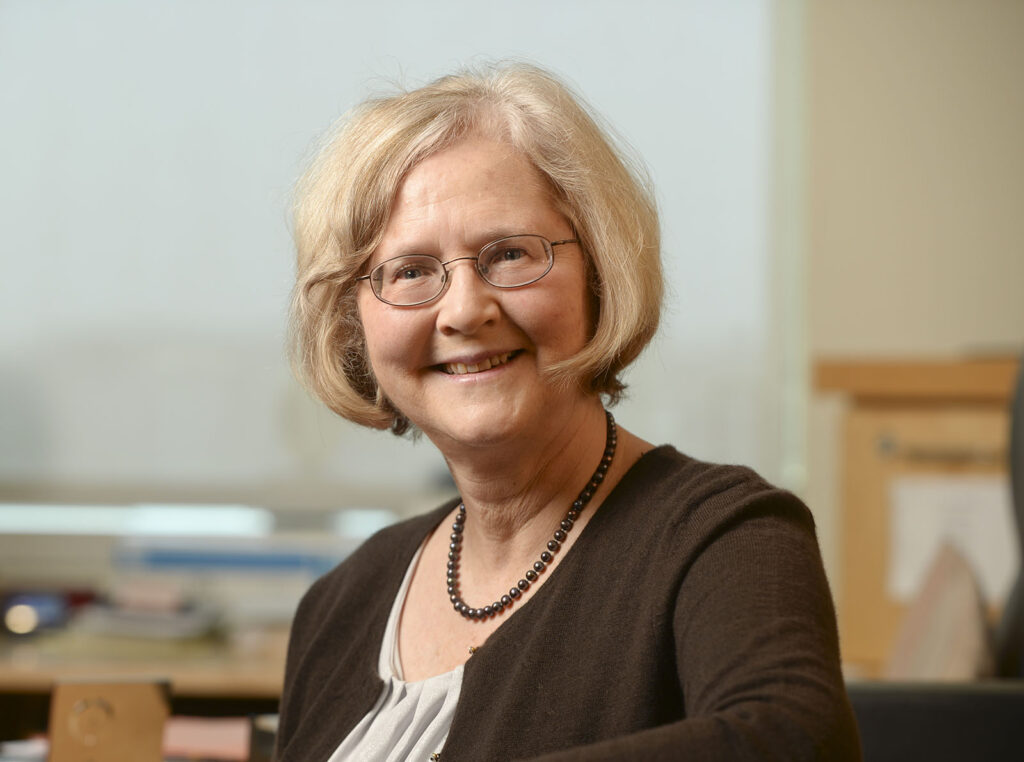
Prof. Dr. Elizabeth H. Blackburn
Member of the Board of Trustees
Nobel Laureate 2009
Professor Emerita, University of California, San Francisco
Professor Elizabeth H. Blackburn, a Nobel Laureate, is currently Professor Emerita at the University of California, San Francisco (UCSF). Throughout her long career in science she has been a leader in the area of telomere and telomerase research, having discovered the molecular nature of telomeres – the ends of eukaryotic chromosomes that serve as protective caps essential for preserving the genetic information – and co-discovered the ribonucleoprotein enzyme, telomerase.
As Professor Emerita in the Department of Biochemistry and Biophysics at the University of California, San Francisco (UCSF), Professor Blackburn and her UCSF research team continue their work with various cells (including human cells), with the goal of understanding telomerase and telomere biology. She and her research team also collaborate in a wide range of investigations of the roles of telomere biology in human health and diseases, through clinical and other human studies.
Born in Australia, Professor Blackburn earned her B.Sc. (1970) and M.Sc. (1972) degrees from the University of Melbourne, and her Ph.D. (1975) from the University of Cambridge in England. She was a postdoctoral fellow in the Molecular and Cellular Biology Department at Yale University from 1975 to 1977.
In 1978, Professor Blackburn joined the faculty at the University of California Berkeley (UCB), in the Department of Molecular Biology. In 1990, she joined the Department of Microbiology and Immunology at UCSF, where she served as Department Chair from 1993 to 1999. She was also appointed a faculty member in the Department of Biochemistry and Biophysics at UCSF.
Professor Blackburn has won many prestigious awards throughout her career. In 2009, Professor Blackburn was awarded the Nobel Prize in Physiology or Medicine. She received the Albert Lasker Medical Research Award for Basic Medical Research in 2006, and in 2007 was named one of TIME Magazine’s 100 Most Influential People. In 2008 she was the North American Laureate for L’Oreal-UNESCO For Women in Science. She was elected a Fellow of the American Academy of Arts and Sciences (1991) and the Royal Society of London (1992), a Foreign Associate of the National Academy of Sciences (1993) and a Member of the Institute of Medicine (2000). She was elected the 1998 President of the American Society for Cell Biology and the 2010- 2011 President of the American Association for Cancer Research. She served on the President’s Council on Bioethics from 2002 to 2004, and has been awarded honorary degrees by 11 Universities.
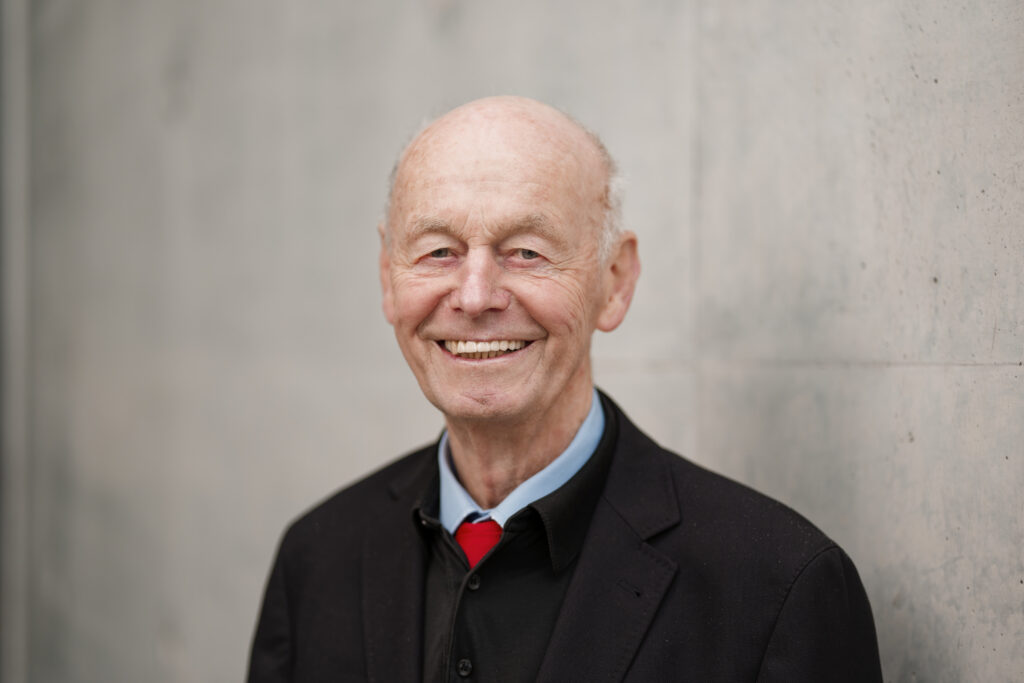
Prof. Dr. Detlev Ganten
Member of the Board of Trustees
Founding President
World Health Summit
Academic and Professional Career
- since 2021: Chairman of the Board of Trustees, World Health Summit
- 2010: Guest Professorship, Collège de France, Paris, France
- since 2009: Founding President World Health Summit and Chairman of Board of Trustees of the Max Planck Institute of Colloids and Interfaces and Max Planck Institute of Molecular Plant Physiology, Germany
- since 2005: Honorary Chairman of the Board, Charité Foundation, Germany
- 2004‐2008: Chief Executive Officer, Charité – Universitätsmedizin Berlin, Germany
- 2002-2007: National Ethics Council
- 1997-2001: President, Helmholtz Association of National Research Centers
- 1997-1998: President, Deutsche Gesellschaft der Naturforscher und Ärzte (GDNÄ)
- 1992-2008: Professor for Clinical Pharmacology, Free University of Berlin
- 1991‐2004: Founding Director, Max Delbrück Center for Molecular Medicine (MDC) Berlin-Buch, Germany
- 1975-1991: Professor for Pharmacology and Experimental Medicine, University of Heidelberg, Germany
- 1973: Ph.D., McGill University, Montreal, Canada
- 1969‐1973: Research Fellow, Clinical Research Institute, Université de Montreal, Canada
- 1968: M.D. degree, University of Tübingen, Germany
Project coordination, Membership in collaborative research projects (Selection)
- since 2011: Board of Trustees, University Paris Sciences Lettres PSL
- since 2011: Scientific Advisory Board, University Sorbonne Paris Cité
- 2009-2021: President of the World Health Summit
- since 2009: Chairman of Board of Trustees of the Max Planck Institute of Colloids and Interfaces and Max Planck Institute of Molecular Plant Physiology, Potsdam, Germany
- since 2009: Scientific Advisory Board, Agence Nationale der Recherche (ANR), Paris, France
- since 2005: Chairman of the Board, Charité Foundation, Germany
- 1962‐1968: Medical Studies at the Universities of Würzburg, Montpellier, Tübingen, Germany
Functions in Scientific Societies and Committees (Selection)
- since 2013: Co‐Chair, Interacademy Medical Panel (IAMP)
- 2002‐2007: German National Ethics Council
- 1997‐2001: President of the Helmholtz‐Association of National Research Centres
- 1996‐1998: President of the Society of German Scientists and Medicines (GDNÄ)
- 1993‐1998: Science Council, German Federal Government
- 1992‐1997: Health Research Council, German Federal Ministry of Education and Research
- 1990‐1995: President of the World Hypertension League
Honours and Awarded Memberships (Selection)
- 2017: Honorary doctorate, University of Coimbra, Portugal
- 2016: Honorary doctorate, Charité, Berlin
- 2003: Légion d’honneur, France
- 2002: Honorary Professorship, Wuhan University, China
- 2000: Federal Cross of Merit, Germany
- 1995: Honorary doctorate, University Iasi, Rumania
- since 1993: Member, German National Academy of Sciences Leopoldina
- 1992: CIBA Award of the Council for High Blood Pressure Research, American Heart Association
- 1990: Max Planck Research Award; Okamoto Award, Japan
- 1981: Science Award of the German League for Combating High Blood Pressure; Sechenev Medal of the Medical Academy
- Moscow; Chavez Award of the International Society of Hypertension

Roland Göhde
Member of the Board of Trustees
Co-Founder | Göhde Foundation
Chair of the Board | GHA – German Health Alliance
Activities & Positions
- Since 2024: Member of the Advisory Group | UNFPA WomenX Collective
- Since 2023: Member of the High-Level Council | Global Surgery Foundation
- Since 2023: Deputy Chairman | German-African Business Association (Afrika-Verein)
- Since 2022: Member of the Steering Committee & Coordination Committee | One Europe for Global Health
- Since 2022: Member of the Board of Trustees | World Health Summit
- Since 2022: Member of the Advisory Board | Institute for Research in International Assistance (IRIA), Akkon University of Applied Sciences for Human Sciences
- 2021-2022: EU Climate Pact Ambassador
- Since 2020: Member of the Board of Trustees | Neurological Rehabilitation Centre NRZ Godeshöhe Bonn
- Since 2019: Founding Member of the Advisory Group | Health Innovation Exchange (HIEx), established by UNAIDS
- Since 2019: Member of the Board | BDI Committee for Industrial Health Economy
- Since 2019: Member of the Strategic Board | BDI Initiative Digital Health
- 2019-2022: Member of the Steering Committee | Global Health Hub Germany
- 2018-2023: Chair | Private Sector Advisory Board of GIZ – Deutsche Gesellschaft für Internationale Zusammenarbeit
- Since 2017: Permanent Guest of the BDI Presidential Board
- 2017-2023: Member | World Health Summit Council
- 2016: Initiator of the German Global Health Award, granted for the first time in 2017
- Since 2014: Chairman of the Board | GHA – German Health Alliance, with its pillar in health system strengthening established jointly by the German government through the Federal Ministry of Economic Cooperation and Development (BMZ) and the Federation of German Industries (BDI)
- Since 2014: Member of the Board | German-African Business Association (Afrika-Verein)
- 2014-2024: Senior Managing Director | Sysmex Partec GmbH
- 2014: Main initiator of the “German-African Healthcare Forum” and of the multisectoral “Action Group on Ebola”
- 2012-2016: Founding Member | Saxon Future Commission for Biotechnology & Life Sciences
- 2012-2014: Founding Member | Advisory Board of the Coordinating Agency for the Free State of Saxony Healthcare Sector
- 2009-2016: Founding Chairman of the Board | biosaxony – Free State of Saxony Biotechnology & Life Sciences Association
- 2000-2014: Managing Partner | Partec, Görlitz
- 2006-2014: Director Essential Healthcare | Partec, Münster
- 2000-2006: HIV/AIDS Project Coordinator | Partec, Münster
Further Activities in non-profit, musical, and artistic fields
In 2012, Roland Göhde co-founded the non-profit Göhde Foundation with a specific focus in Africa on essential healthcare, water supply, education and electricity supply, since 2017 with a second area of activities in classical music, especially in the context of supporting children as well as top young talents.
Göhde co-initiated the “1st African Film Music & Composing Workshop” in Kenya in 2015 with One Fine Day Films by internationally renowned director Tom Tykwer, Marie Steinman and Sarika Lakhani, mentored by composer Ali N. Askin, winner of the 2008 German Film Award, and the subsequent studio recordings that resulted in the soundtrack for the feature film “Kati Kati” – Kenya’s official submission in the Best Foreign Language Film category at the 90th Academy Awards, the OSCARS® 2018, after the film won the Prize of the International Federation of Film Critics (FIPRESCI) at the 2016 Toronto International Film Festival. Same as for “Kati Kati”, he was also actively involved as a supporter and musician in the recording of the soundtrack for the One Fine Day Films feature film “Supa Modo“, Kenya’s official submission in the Best Foreign Language Film category at the 91st Academy Awards, the OSCARS® 2019. In 2016, Göhde initiated and co-organized the “1st German-African Symposium on Creative Economy and Cultural Entrepreneurship” in Berlin with 500 participants, in partnership with the Federal Ministry for Economic Cooperation and Development (BMZ), the Federal Foreign Office and the Heinrich Böll Foundation, among others. The documentary “Forte” by US filmmaker David Donnelly (“Maestro”) was produced in 2018/19 with Roland Göhde as Executive Producer. Göhde also significantly supported the co-production of the “Mozart in Havanna” documentary by arte/ZDF, Deutsche Welle TV and others, as well as the “Mozart y Mambo” concert recording of Sarah Willis, Berliner Philharmoniker. The related CD release reached top 1 position in the German classical music charts for the month of August 2020. The subsequent “Mozart y Mambo: Cuban Dances” TV production from ZDF/arte has been supported as well by Roland Göhde and the Göhde Foundation, reaching the top 10 classical music charts in October 2022.
Göhde has been honorary Managing Director of the collegium musicum instrumentale at the Westfälische Wilhelms-Universität Münster since 2008, Chairman of the Board of the “Verein zur Förderung des jungen orchesters NRW e.V.” from 2012 to 2022 (since 2022: Honorary Chairman), Member of the Federal Board of Trustees of CJD – Christliches Jugenddorfwerk Deutschlands e.V. from 2015-2022, and founding Member of the Board of the “Verein zur Förderung des collegium musicum instrumentale der Universität Münster e.V.” since 2020.
Awards
Besides other awards, Roland Göhde received the Innovation Award of the Free State of Saxony in 2003 and the IQ Innovation Award of Central Germany in 2007. At the “1st German Congress of World Market Leaders” in 2011, he was honored with the Young Entrepreneurs Award, granted for the first time by Adolf Würth GmbH & Co. KG. For his commitment and merits for the biotechnology sector in the Free State of Saxony, Göhde received the “Biosaxony Award” in 2019.
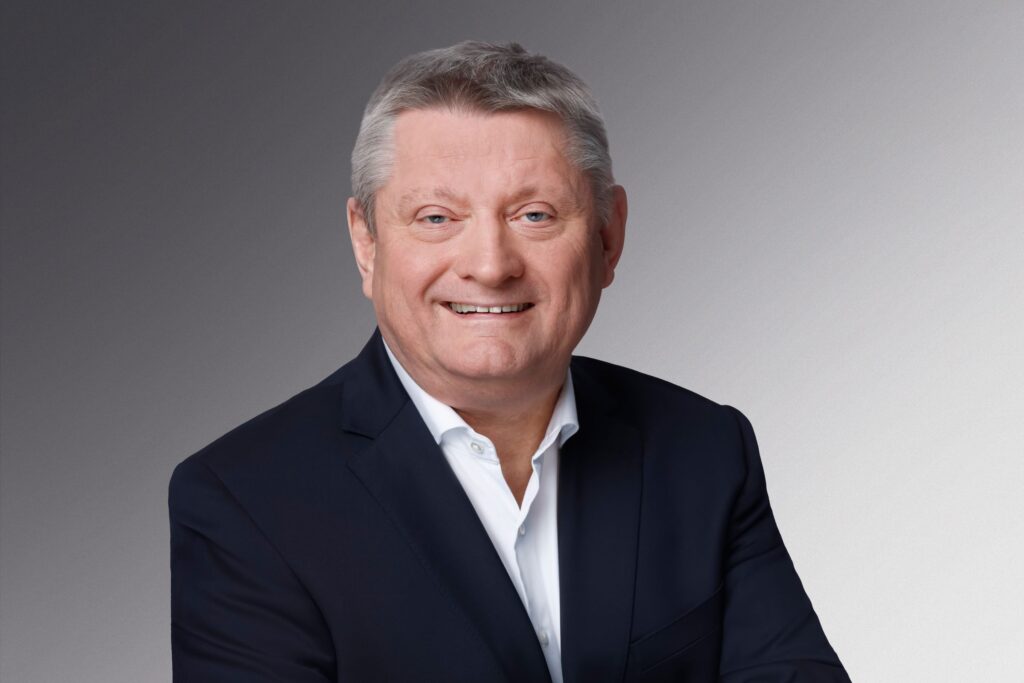
Hermann Gröhe
Member of the Board of Trustees
President | Deutsches Rotes Kreuz (German Red Cross)
Federal Minister of Health 2013-2018
Since 1994, Hermann Gröhe is a member of the German Bundestag, currently acting as Vice Chairman of the CDU/CSU group for economic cooperation and development as well as labour and social policy. From 2013 to 2018, Mr. Gröhe was the Federal Minister of Health, giving Global Health issues a great priority in his work. A lawyer by profession, Hermann Gröhe is a faithful protestant and member of the National Synod of the Protestant Church of Germany (EKD).
Politics
- since 2018 Deputy Chairman of the CDU/CSU-Parliamentary Group and commissioner for churches and religious communities
- since 2014 Member of the CDU Federal Executive Board
- 2013-2018 Federal Minister of Health
- 2009-2013 Secretary General of the CDU
- 2008-2009 Minister of State at the Federal Chancellery, responsible for the coordination between states and federal government, deregulation and parliamentary relations
- 2005-2008 Legal Advisor of the CDU/CSU-Parliamentary Group, Spokesman of the CDU/CSU-Parliamentary Group on the first fact-finding committee, Member of the Committee on Foreign Affairs
- 2001-2009 Chairman of the CDU Rhein-Kreis Neuss
- 1998-2005 Spokesman on Human Rights and Humanitarian Aid of the CDU/CSU-Parliamentary Group
- 1994-1998 Spokesman of the “Young group” in the CDU/CSU Parliamentary Group
- since 1994 Member of the Deutscher Bundestag
- 1993-1994 Member of the CDU programme commission
- 1991-1993 Member of the County Council Neuss
- 1989-1994 Chairman of the national Junge Union Germany
- 1984-1989 Member of the County Council Neuss
- 1983-1989 County chairman of the Junge Union Neuss
- since 1977 Member of the CDU
Education and professional experience
- since 1994 Licensed lawyer
- 1993 Second State Examination
- 1991-1993 Trainee lawyer at the District Court Cologne
- 1987-1993 Research assistant at the department of Political Philosophy and Legal Policy at the University of Cologne
- 1987 First State Examination
- 1980-1987 Law school at the University of Cologne
Social commitment
- since 2021 Member of the Board of the Deutsche Nationalstiftung (German National Foundation
- since 2018 Deputy Chairman of the Konrad Adenauer Foundation
- since 2001 Member of the Board of Directors of the Konrad Adenauer Foundation
- 2000-2008 Chairman of the “Diakonisches Werk” in Neuss, the relief organization of the EKD
- since 1997 Member of the National Synod of the EKD
- 1997-2009 Member of the Council of the Protestant Church in Germany (EKD)
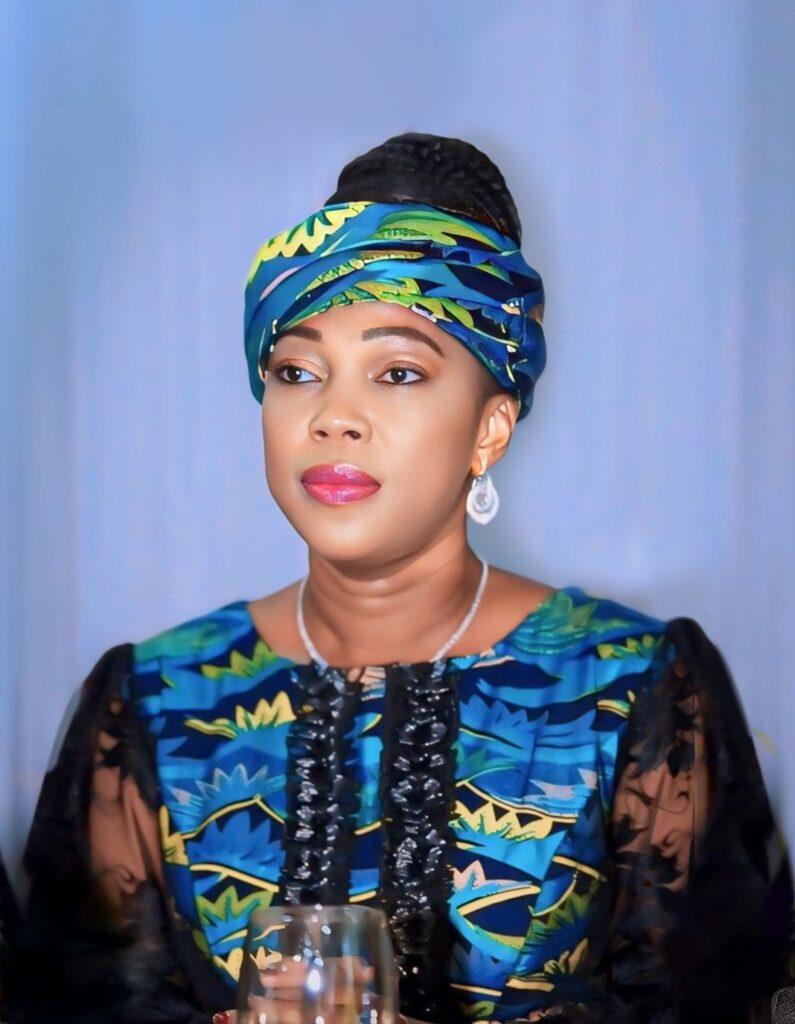
H.E. Dr Fatima Maada
Member of the Board of Trustees
First Lady of the Republic of Sierra Leone
President | Organisation of African First Ladies for Development
First Lady of Sierra Leone, Madam Fatima Maada Bio, is a dedicated advocate for women’s empowerment and child protection. A firm believer in pan-Africanism, she uses her platform to address gender-based violence and promote education for girls. Drawing from her personal journey—having narrowly escaped child marriage and beginning charitable work at the age of 16—her advocacy is both heartfelt and impactful.
Educated in the UK, she holds degrees in Performing Arts and Journalism from the Roehampton Institute and the University of the Arts London, respectively. Before her political role, she built a successful career in the entertainment industry as an award-winning actress, producer, and writer, gaining recognition for roles in Nollywood films like Mirror Boy.
As First Lady, Fatima Bio launched the groundbreaking “Hands Off Our Girls” campaign in 2018, bringing together African First Ladies in a protest against gender-based violence. This initiative led to significant legislative action, including President Julius Maada Bio’s declaration of a National Emergency on Rape and Sexual Violence in 2019 and the revision of the Sexual Offences Act. The campaign gained international attention, with engagements at the UN General Assembly and other global forums.
Her initiatives extend beyond advocacy. During the COVID-19 pandemic, she launched the National Food Basket Programme to distribute essential food items across Sierra Leone. In 2019, she introduced a Free Sanitary Pads for Schoolgirls initiative, helping reduce absenteeism among girls and improving menstrual hygiene awareness. These efforts earned her recognition from the African Union as Champion for Sanitation and Hygiene in 2021.
Fatima Maada Bio has been honored globally, including the Warrior Award in California for her contributions to women and girls, and recognition by the United Nations as a champion of the Education Plus program. She also received the GAB Award for promoting a positive image of Africans worldwide.
Currently, she is spearheading the construction of a hospital, Centre of Excellence, and administrative block at the 34 Military Hospital in Freetown, aiming to transform it into a top-tier medical facility in Africa.
Her influence was felt during the 2018 elections, where her grassroots engagement and conflict resolution helped unify divided communities. Even Queen Elizabeth II was impressed by her drive to redefine the role of women in leadership during the Commonwealth Heads of Government Meeting in 2018.
A tireless leader and role model, First Lady Fatima Maada Bio continues to inspire through her philanthropy, advocacy, and unwavering commitment to uplifting Sierra Leonean women and children.
In 2025, she effectively took over the Presidency of the Organisation of African First Ladies for Development (OAFLAD)
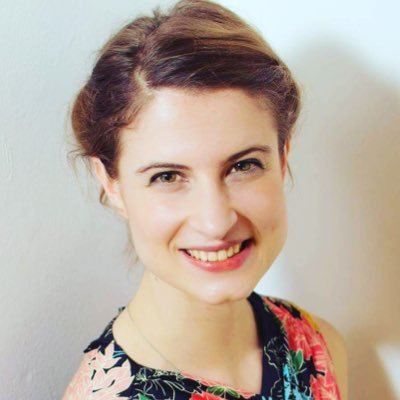
Dr. Miriam Orcutt
Member of the Board of Trustees
Former Executive Director
Lancet Migration
Dr Miriam Orcutt (MBBS, MSc) is a Senior Research Fellow in Global Public Health and Forced Migration at the Institute for Global Health, University College London, and Executive Director of Lancet Migration: global collaboration to advance migration health.
Her main areas of academic and policy interest are: global health policy and governance and migration, health system and medical-humanitarian resilience and response to migration, forced migration and health, structural and political determinants of health for migrants.
Miriam has a particular interest in the effective translation of research into policy and practice. She has extensive experience working with NGOs and multilateral organisations; such as: Médecins sans Frontières (2018 and 2019), the World Health Organisation (regular consultancies 2017-2019), the Syrian American Medical Society (fieldwork 2016), DevTech (fieldwork 2012); and experience leading or contributing to research reports and policy briefings for WHO (2017-19), World Bank (2017), Terre des Hommes (2015), among others.
Fieldwork experience in: Nepal, India, Zambia, South Africa, Bolivia, Argentina; and in migration contexts in: Lebanon, Egypt, Greece, Serbia, Belgium, Italy.
Contributed to or made interventions at the following global policy processes as a civil society representative: the Global Compact for Migration global stakeholder consultations in: New York, May 2017 and Geneva, July 2017; Global Compact for Migration high-level member state meeting in Morocco, 2018; WHO Global Action Plan to improve the health of migrants and refugees: expert consultation meeting, Geneva, 2019; World Health Assembly, Side Event on Universal Health Coverage and Migration, May 2019; United Nations high-level meeting on Universal Health Coverage, New York, 2019.
Miriam previously worked as a medical doctor in the UK’s National Health Service (NHS), on the Academic Clinical Foundation Programme in Epidemiology and Global Public Health, in Newcastle upon Tyne, UK. She holds an MSc in Medical Anthropology with Distinction from Durham University and is a doctoral candidate on health system response to forcibly displaced populations.
She has published academic articles in the field of migration and health as relates to global public health and health policy in peer-reviewed journals, such as The Lancet and The British Medical Journal, and was one of the lead authors of ‘The UCL-Lancet Commission on Migration and Health’ (published in the Lancet in December 2018).
Miriam has over five years of humanitarian consultancy and project management experience, including with The Lancet, the World Health Organisation and the World Bank, and is skilled in leading research projects and policy work. In 2018 she was named a Canadian Woman Leader in Global Health, on the inaugural list by The Lancet.
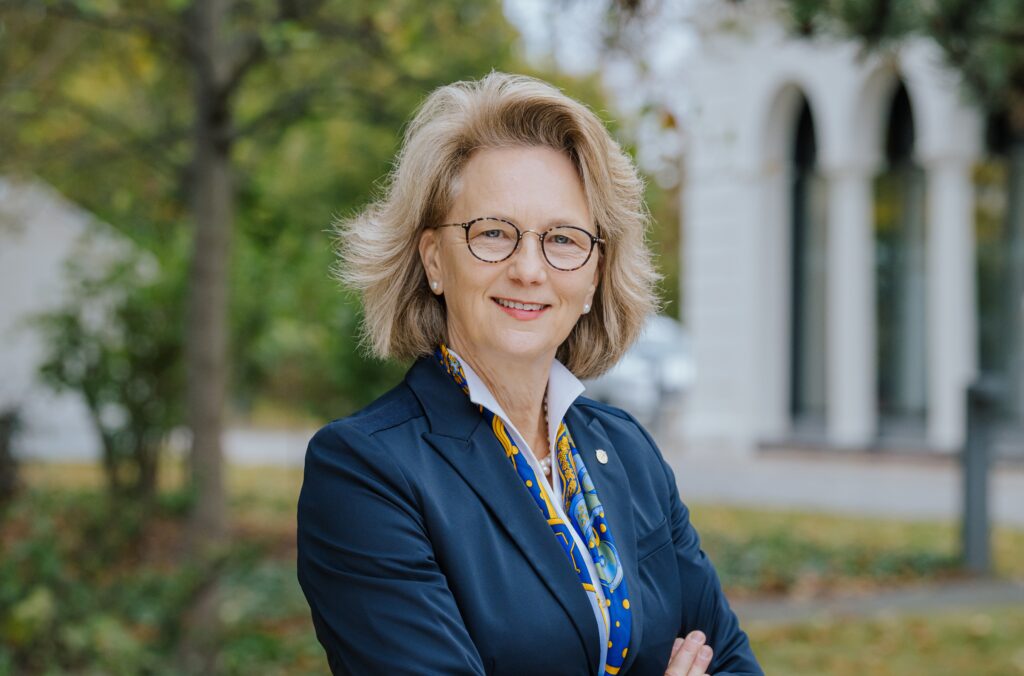
Prof. Dr. Bettina Rockenbach
Member of the Board of Trustees
President
German National Academy of Sciences Leopoldina
Prof. Dr. Bettina Rockenbach is President of the German National Academy of Sciences Leopoldina and a leading expert in behavioral and experimental economics. Her academic work focuses on promoting cooperation in complex social dilemmas and developing mechanisms for socially responsible action.
She is a Full Professor at the University of Cologne and a Senior Research Fellow at the Max Planck Institute for Research on Collective Goods. She also serves as Director of the Reinhard Selten Institute, bridging interdisciplinary approaches across economics, psychology, and public policy.
Throughout her career, Prof. Rockenbach has held numerous advisory roles for national and European science bodies, including as Chair of the European Research Council’s peer review panel for social sciences. Her pioneering research has influenced public policy and the design of cooperative frameworks in areas such as resource sustainability, health equity, and global governance.
In recognition of her scientific achievements, she was elected to the German National Academy of Sciences Leopoldina in 2013.
Photo credit: © Anna Kolata for Leopoldina
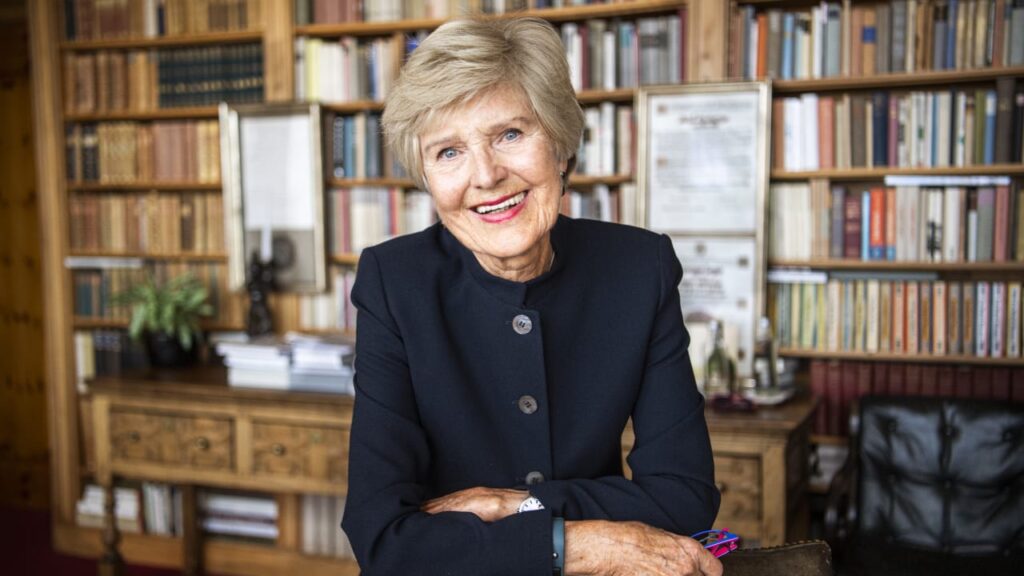
Dr. h.c. mult. Friede Springer
Member of the Board of Trustees
Chair | Axel Springer Stiftung
Founder | Friede Springer Stiftung
Dr h.c. Friede Springer is the Vice Chairwoman of the Supervisory Board of Axel Springer SE and holds the chairmanship of her two foundations:
The Friede Springer Foundation promotes scientific, medical, artistic and cultural projects.
The Axel Springer Foundation supports exclusively and directly scientific, non-profit and charitable purposes. The focus is on German-Jewish historical research and on German-Israeli relations.
Friede Springer has been a member of the Supervisory Board of Axel Springer SE since 1985 and its Vice Chairwoman since 1999.
In 1996, Friede Springer was awarded the Grand Cross of Merit of the Order of Merit of the Federal Republic of Germany.
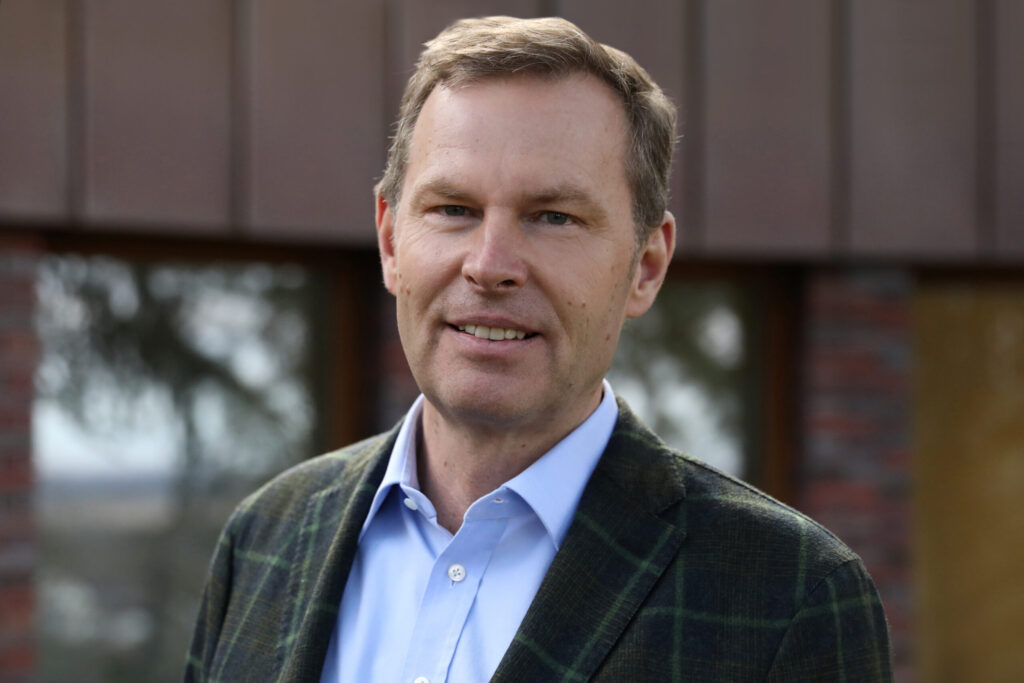
Dr. Johannes Stellmann
Member of the Board of Trustees
Managing Director
Software AG – Foundation (SAGST)
Education, training and positions
- Business Administration, University of St. Gallen
- Doctorate with Professor Dr Walter Krieg and Dr Ulrich Steger
- Initiation and Founding, incl. fundraising (CHF 1 mill.) of the Institute for Economy and Ecology
- Years of apprenticeship and travel
- Sectors included industry, finance, consulting and self-employment in the field of restructuring/reorganization
- 2002 – 2022: Chief Executive Officer, WALA Heilmittel GmbH
- Since 2022: Member of the Executive Board, Software AG – Foundation
Other activities
- Member of supervisory bodies of medium-sized companies, incl. Tegut Handelsgesellschaft, Germany / Sigvaris Group, Switzerland)
- Member of foundation committees, incl. DM Foundation, WALA Foundation, Software AG – Foundation
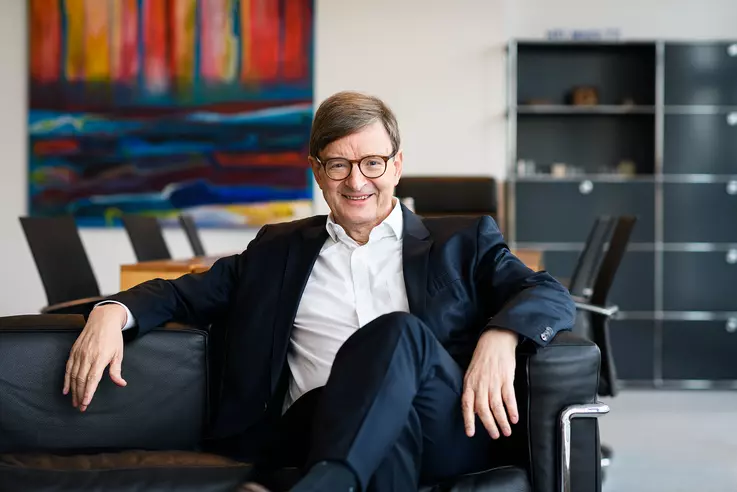
Prof. Dr. med. Dr. h.c. mult. Otmar D. Wiestler
Member of the Board of Trustees
President 2015-2025
Helmholtz Association of German Research Centers
© Helmholtz/Phil Dera
Otmar D. Wiestler was born in Freiburg, Germany on November 6, 1956. After completion of his medical training at the University of Freiburg Medical School, he received his M.D. degree in 1984. From 1984 to 1987 he trained as a postdoctoral fellow at the Department of Pathology, University of California in San Diego/USA. After a five–year period as senior resident and Assistant Professor in Neuropathology at the University of Zurich/Switzerland, he moved to the University of Bonn in 1992, where he was appointed as Professor of Neuropathology and Head of the Department of Neuropathology. At this University, he established a major neuroscience research center. In January 2004 he joined the German Cancer Research Center (DKFZ) in Heidelberg as Chairman and Scientific Member of the Management Board. Since September 2015 he serves as the President of the Helmholtz Association of German Research Centers in Berlin.
Otmar D. Wiestler has served on many scientific and professional boards, as Head of the German Brain Tumor Reference Center in Bonn, Chairman of the BONFOR research committee at the University of Bonn, President of the German Society of Neuropathology and Neuroanatomy, Head of the Review Board Theoretical Medicine of the Deutsche Forschungsgemeinschaft (DFG), and as CEO of the Life & Brain Neuroscience platform in Bonn. Until 2014 heserved as a Member of the Medical Advisory Board of Deutsche Krebshilfe (German Cancer Aid). From 2007 to 2012, he acted as a Vice President for Health of the Helmholtz Association. Between 2016 and 2023, he chaired the University Council of the Technical University of Munich (TUM). Since 2015, he is a member of the Supervisory Board of Bayer AG. Furthermore, he is a member of the Board of Trustees of the Hertie Foundation (Gemeinnützige Hertie–Stiftung); member of the Board of Trustees of the Werner–von–Siemens–Ring–Foundation; member of the Board of Trustees of the Max Planck Institute of Molecular Cell Biology and Genetics, Dresden and on the Board of Directors of the Mark Foundation for Cancer Research, New York.
Otmar D. Wiestler contributed more than 300 papers and book chapters to the scientific literature. He has also served as an editorial board member of several international journals, including Acta Neuropathologica (Editor), Brain Pathology, Cancer Letters, Carcinogenesis, Journal of Neurology, Neuropathology & Applied Neurobiology. Since 2001, he is an elected member of the German Life Science Academy LEOPOLDINA. In 2004, he received the German Federal Cross of Merit (Bundesverdienstkreuz). Honorary doctoral degrees (Dr. h. c.) were awarded to him in 2012 by the University of Tuebingen, in 2014 by the Ludwig Maximilians University of Munich, in 2016 by the University of Duisburg–Essen, in 2017 by the University of Wuerzburg and in 2021 by the Weizmann Institute of Science in Rehovot, Israel
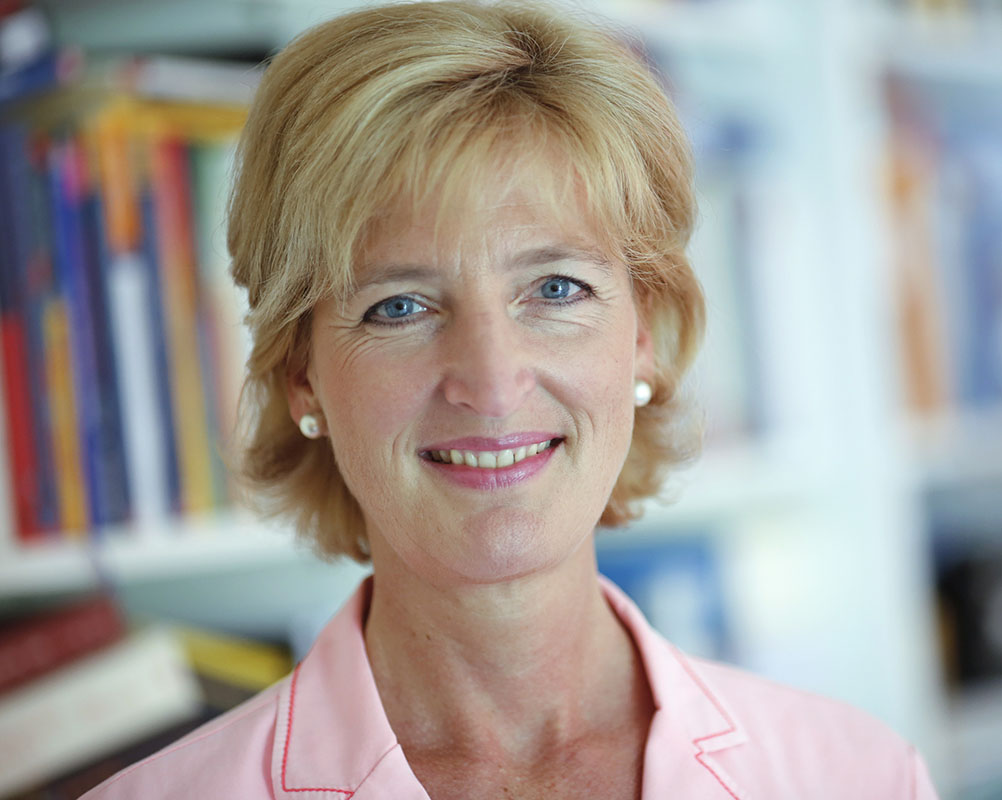
Prof. Dr. Christiane Woopen
Member of the Board of Trustees
Transdisciplinary Research Area “Individuals, Institutions and Societies”, Hertz Professorship Life Ethics, University of Bonn
Christiane Woopen is a Heinrich Hertz Professor of “Life Ethics – Individuals, Institutions and Societies” at the University of Bonn and Founding Director of the Centre for Life Ethics since October 2021.
Previously, she was Professor of Ethics and Theory of Medicine at the University of Cologne, where she was Founding Director of the interfaculty Cologne Centre for Ethics, Rights, Economics, and Social Sciences of Health (ceres).
In addition to leading national and international research projects, she is involved in policy advocacy, including:
- 2012-2016 Chair of the German Ethics Council
- 2014-2016 President of the Global Summit of National Ethics Councils
- 2017 Member of the UNESCO International Bioethics Committee
- 2018-2019 Co-Spokesperson of the German Government Data Ethics Council
- 2017-2021 Chair of the European Group on Ethics in Science and New Technologies (EGE)
Membership in Scientific Academies
- North Rhine-Westphalia Academy for Sciences and Arts
- Berlin-Brandenburg Academy of Sciences
- Academia Europaea
Awards
- Federal Cross of Merit 1st Class
GUESTS OF THE BOARD OF TRUSTEES

Prof. Dr. Balvir S. Tomar
Ex Officio Guest of the Board of Trustees
World Health Summit International President 2025
Founder and Chancellor, NIMS University
Rajasthan, Jaipur | India
A highly successful and decorated individual with a long list of medical adornments and feats to his credit, the Chairman and Chancellor of Nims University Rajasthan, Jaipur India Prof. (Dr.) Balvir S. Tomar, is the actual impetus and reason of existence of this magnificent institution of learning. A renowned personality, Dr. Tomar is famous in medical circles not only within the country but even abroad for his dynamism, versatility, charisma and multi-dimensional personality. A rare precedent of exceptional talent, hard work and acute insight with an immense zeal to serve society Dr. Tomar was born to a noble family of educationists and doctors in Varanasi. A bright student all through his academic years he followed the wishes of his parents and decided to become a doctor early on for which he took admission in the Gajra Raja Medical College in Gwalior. A true achiever he passed his MBBS with a Gold Medal and claimed the top spot in his University.
When Dr. Tomar was pursuing his education proper medical services for children were seriously lacking in the country. There were only a few good Hospitals in the big cities. He was deeply moved by the plight of these children as most of them were suffering from a rising mortality rate, malnutrition and many other diseases. His deep rooted empathy towards young children made him opt for an MD in Paediatrics, which was a tough branch at that time and only toppers would get admission into this specialization. He relentlessly pursued the specialization with full zeal and enthusiasm. While pursuing his MD he worked selflessly towards taking care of sick children and provided them with medical assistance whenever possible. In spite of all the noble work that he was doing he even bagged a Gold medal in his MD.
Dr. Tomar didn’t just stop there. He had an undying zeal to study further. The many research papers that he had written and presented began getting popular not just in the country, but even internationally. He pursued his specialization in Paediatric Nutrition from the prestigious Harvard University, USA. Because of his academic brilliance, he was called by the Oxford University to pursue his further studies on scholarship. He then moved to the Kings College, London to complete his specialisation in Paediatric Liver. Even at Kings College he was a Gold medallist and was given many honorary memberships including MIAP, MIHP and FACU. Other than this he also got training from University of California, San Diego, USA, making his educational qualifications much stronger. He also did fellowship from the University of London and is a WHO fellow in Child Health in USA, and Common Wealth Medical fellow in London. Always a devoted Paediatric, Dr. Tomar was one to invent a treatment therapy for a rare disease in children known as ‘Indian Child Cirrhosis’. The disease was so dreaded that almost 100% of children used to die of this medical condition. His research project was published in ‘Advances in Paediatrics’, which is a yearly advanced research book published from USA. After his research project the disease was eradicated. Owing to his academic and medical efficiency, the World Health Organisation, made Dr. Tomar a Fellow Member. He was asked to work on the rising mortality rates and dreaded diseases affecting children in lesser developed countries. He was successful to a large extent in his endeavour and was soon awarded the ‘Commonwealth Fellowship in London’.
Dr. Tomar was destined to acclaim a tall stature for himself in the medical and healthcare field. Over the years he has widely been admired as a strategist, innovator, dynamic leader, motivator and a humane educationist who values holistic development of individuals. A man of many experiences and exposures, Dr. Tomar travelled the world, but his heart was in India. After extensive travel for his academic pursuits abroad, Dr. Tomar returned to India and joined the Sawai Man Singh Medical College in Jaipur. For the first time ever at Sawai Man Singh Hospital, he set up a Paediatric Gastroenterology Centre, which helped in reducing the death rate among children suffering from Gastric disorders by 90%. The centre that he had set up initially did not have the required funds and so contributions and donations were invited. Looking at his passion, perseverance and noble vision; people started sending their donations and the entire centre was finally set up. The centre’s aim was to treat children with stomach related issues.
In 1995, Dr. Tomar organised the 1st International World Congress of Paediatric Gastroenterology, where around 150 world famous Gastroenterologists came together for the very first time. The conference proved to be a milestone and initiated an era of Paediatric Gastroenterology in the world. For the first time the World Society of Paediatric Gastroenterology was established under the mentorship of Prof. Balvir S. Tomar with more than 1000 members. Due to his exemplary efforts in this field, where he bought together so many international Doctors together, he was felicitated in the second conference in Boston.
Dr. Tomar is the only to be a member of GastroenterologySociety of USA. A distinction nobody has been able to achieve. He still pursues his love for academics and is a visiting professor at the Harvard, Kings College London, University of California, and other leading US and European medical colleges and universities. He is also the Editor in Chief, member of Editorial Board of numerous leading publications and has written many books and journals on Paediatrics. He also has a chapter in the text book of Indian Academy of Paediatrics (IAP). Dr. Tomar also serves on a number of bodies and associations in the country. He serves as the President, Society of Paediatric Gastroenterology, Hepatology, Transplant and Nutrition; Director, Institute of Paediatric Gastroenterologyand Hepatology and Institute of Organ Transplant. He is on the Chair at the Institute of Stem Cells and Regenerative Medicine and Institute of Nutrition and Public Health. Dr. Tomar also serves as the Chancellor of NIMS University, Jaipur, and is Chairman of the NIMS Global Group. He is Chairman of the National Council on Chemicals and Petrochemical – ASSOCHAM, and National Council of Skill Development – ASSOCHAM. He is also member of the Medical Council of India and the National Accreditation Board for Education and Training. According to Dr. Tomar, “Education is inevitable for sustainable development and competency based education holds the secret to a sustainable career.” Dr. Tomar has also proved to be an exemplary citizen of the country all through his life. He always did what he thought was right, following his heart’s calling even if it wasn’t the norm. Among the many awards that hehas received he has been felicitated with the ‘Rajeev Gandhi’ award that he received from the then Prime Minister, HD Deve Gowda. For outstanding contribution in the field of Health and Education worldwide Dr. Tomar was given the ‘Bharat Gaurav Award’ by the British Parliamentarian (London). Due to his exemplary work in field of Health and Education he has been felicitated with the ‘Lifetime Achievement Award’ by many renowned world organizations.
Dr. Tomar has been an ardent follower of Pt. Madan Mohan Malviya and his teachings. His teachings have been an inspiration for him to continuously strive to achieve all that hehasset out to do and yet make valuable contributions to society for the larger good of people. Prof. Tomar has also made pioneering contributions in the area of Skill Development and Entrepreneurship. He has always promoted the creation of opportunities for acquisition of skills especially for the youth, women and disadvantaged groups. He has also suggested the Six Arm Theory for skill development and entrepreneurship. The six pillars of the theory of skill development and Entrepreneurship are Knowledge, Awareness, Competencies, Experience, Training and Creativity. In this post-globalization era, except a few, almost all nations across the globe are struggling with economic and political instability, social atrocities, lifestyle problems, slow pace and quality of human development and low per capita incomes. Some of these crucial issues can be dealt with skill development and developed countries in the current era of globalization, Dr. Tomar has initiated skill development certificate courses in the NIMS University for graduate and post-graduate students.
With more than 100 Research Papers credit and being part of many international bodies namely the WHO, UNESCO and UNICEF, there was a lot that Dr Balvir S Tomar had already achieved in the field of Medicine. But his infectious energy and a vision to do something for society didn’t let him stop there. After having pursued his education from some of the best institutions of the world, his dream was now to build an institute of world class standards in his own country, one that would impart quality education to all. And hence, the NIMS University was born. He set up the college in the year 2004 and four years later he took the college to great heights to make it into a University, being its mentor and driving force right through. Over the years there have been a number of awards and recognitions that the University has got for its work and accomplishments in the field of education. Pursuing the motto “Education’s World, World’s Education,” Nims University has only grown from strength to strength, with each passing day and year. With more than 350 courses on offer namely Medical, Dental, Pharmacy, Paramedical, Engineering and Technology, Management, Architecture, Humanities, Fashion Designing and Aeronautical Engineering, NIMS has become a Global Epicenter of Knowledge, attracting even international students from more than 25 countries.
Nims University is spread out on a sprawling campus on the Jaipur Delhi highway. It is not only excelling in almost every sphere of work but is also of great help to the many communities living around the area. Other than providing employment to a large unorganized workforce, NIMS is also focusing on affordable healthcare so that the not so privileged can afford entrepreneurship that can be taught in varsities in those countries.
Keeping this objective in mind, NIMS University has set up a centre of Indo Japan Technical Intern Training Programme (TITP). Its aim is to provide a platform and prepare young workers from India to acquire industrial and vocational skills as technical intern trainees in companies in Japan and thereby improve their acquired skills through more three to five years of technical intern training, so that they can utilize such skills for economic and industrial development after they return to their home country.
He has also suggested the integration of traditional medicine with modern medicine. Prof. Tomar organized the international seminar ‘Integration of Indian Medicinal System into Modern Medicine’ with the department of AYUSH, Ministry of Health and Family Welfare. During a global conference of ‘Consensus of Pediatrics and Child Health’ (CIP) in China in March 2016, he suggested that the integration of traditional individual medicine of the country is a better way for medical healthcare globally.
Prof. Tomar is also the Chairman of the National Skill Council, ASSOCHAM and member of the Quality Council of India: NABET. He has also taken initiatives for skill development in the Petrol Coal sector. Many projects have been planned to develop a skilled workforce in the Petroleum sector with the collaboration of the UFA state Petroleum Technological University, Russia.
Since, skill education and innovations are critical for the development of a nation and more so with developing and under quality healthcare services.
Under the dynamic leadership of Dr Tomar, NIMS University has earned a number of awards and recognitions to its credit. For the last five years, NIMS University has been awarded as ‘Best University’ on various parameters. NIMS was awarded as the ‘Best Private University’ of the year by Assocham in the year 2016 and 2017 it was also rewarded as the Best Professional Institute for Skill Development again by Assocham. The University has also been given ‘Six Sigma Healthcare Excellence Award’ and also the Best Medical Science University for 2015. NIMS Medical College was ranked the ‘Fifth Best Emerging College in India’ by India Today in 2016.
Dr. Tomar is known as a deft planner and facilitator who have brought about countless growth opportunities for students, faculty members, associates and people at large. He is applauded by one and all for his observance of highest principles of integrity in professional and personal life. The University has an Office of Academic Integrity to uphold fair practices and promote faculty diversity. He has regularly undertaken numerous philanthropic endeavours, establishing research centres in many areas, dedicated to the service of nation and the society at large.
The NIMS University and Medical College campus also has a Super Specialty Hospital with specializations of Neurosciences, Cardiology, Cardiothoracic Surgery, Gastroenterology, Hepatology, Oncology, Nephrology, Urology, GI and Liver Sciences, IVF, Critical Care and Emergency Medicine and Bone and Joint Replacement Surgery. This exquisite hospital is a ‘Healthcare for All’ centre, catering especially to the needs of lower income groups. The hospital specializes in providing low cost treatment of all ailments and is approved by the Government of Rajasthan for Bhamashah Yojna, BPL Chief Minister Scheme, Janani Suraksha Yojna and other such welfare schemes.
Dr. Tomar’s vision for Nims University is to build a truly innovative higher education system. “NIMS University stands to create linkages between competency based professional and technical education and employability,” says the Chairman and Chancellor of NIMS University.
Prof. (Dr.) Balvir S. Tomar sees students, faculty members, doctors, patients and associates as integral elements of a large, close-knit community, working towards the common goals of human welfare and service of the nation through academics and healthcare. He has been a strong pillar, amidst tough times and challenges that holds high the morals and ethics of this grand institution called Nims University Rajasthan, Jaipur to which he is dedicated just like a priest to a temple.
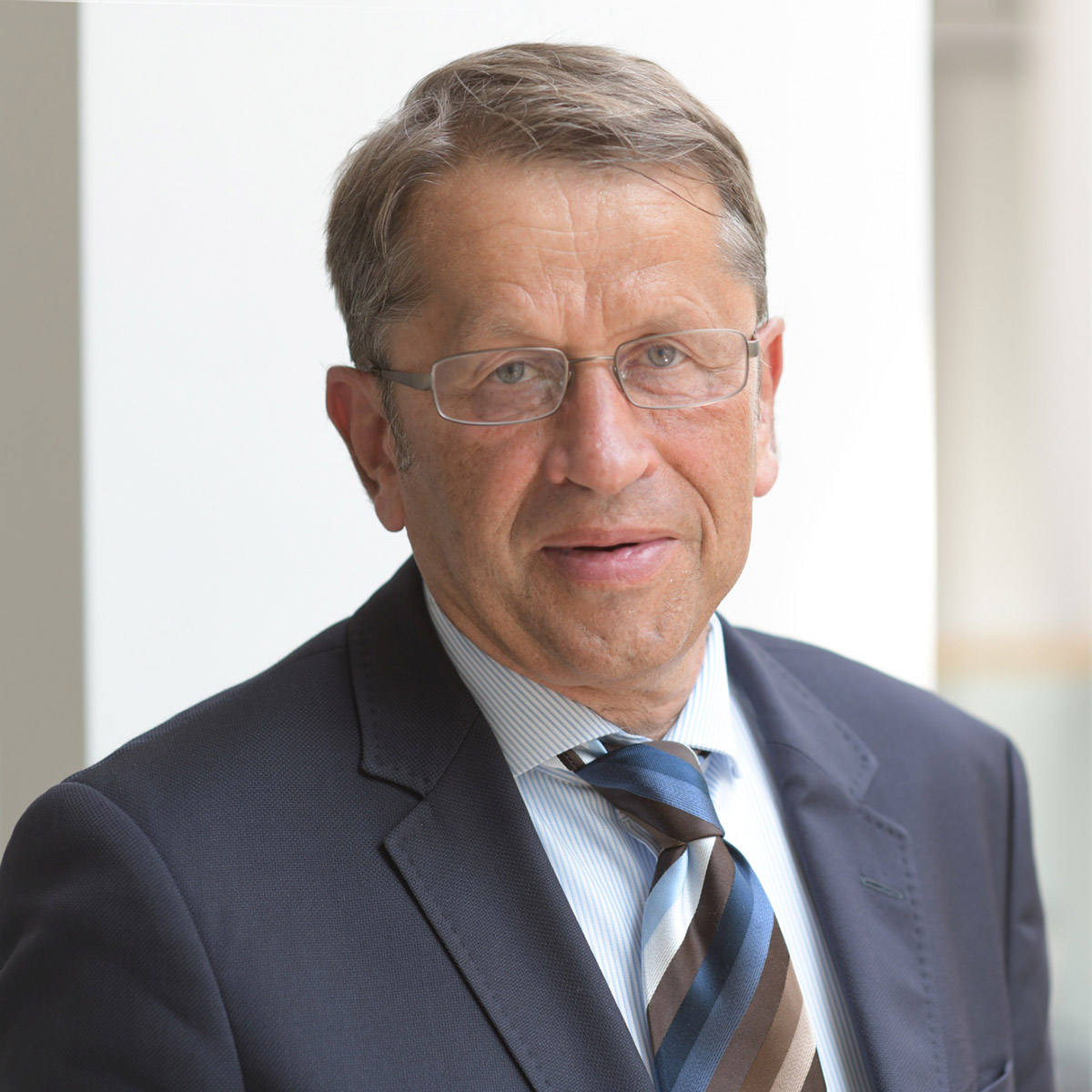
Prof. Dr. Heyo K. Kroemer
Ex Officio Guest of the Board of Trustees
CEO
Charité – Universitätsmedizin Berlin
Academic & Work Experience
-
seit 09/2019: Vorstandsvorsitzender der Charité – Universitätsmedizin Berlin
-
2012 – 08/2019: Vorstand Forschung und Lehre, Dekan der Medizinischen Fakultät und Sprecher des Vorstands der Universitätsmedizin Göttingen
-
2012: W3-Professor für Pharmakologie und Personalisierte Medizin an der Universitätsmedizin Göttingen
-
2000 – 2012: Dekan der Medizinischen Fakultät der Ernst Moritz Arndt-Universität Greifswald und Mitglied des Klinikumsvorstands
-
1998 – 2012: Professor für Pharmakologie und Toxikologie an der Ernst Moritz Arndt-Universität Greifswald
-
1998: C3-Professor für Klinische Pharmazie an der Universität Bonn
- 1998: Ruf auf die C3-Professur für Experimentelle Pädiatrische Onkologie an der Universität Münster (abgelehnt)
- 1992: Habilitation für Pharmakologie und Toxikologie an der Eberhard-Karls-Universität Tübingen
- 1989-1998: Senior Postdoc am Dr. Margarete Fischer-Institut / Robert-Bosch- Krankenhaus in Stuttgart
- 1987-1989: Forschungsaufenthalt im Biozentrum der Universität Basel und zweijährige Postdoc-Zeit in der Division of Clinical Pharmacology der Vanderbilt University in Nashville/USA
- 1987: Kurzstipendium der Paul-Martini-Stiftung für einen Forschungsaufenthalt am Biozentrum der Universität Basel
- 1986: Prüfung zum Dr. rer. nat. an der Technischen Universität Braunschweig
- 1983-1986: Promotion am Dr. Margarete Fischer-Bosch-Institut für Klinische Pharmakologie / Robert-Bosch-Krankenhaus zum Dr. rer. nat. in Stuttgart
- 1978-1983: Studium der Pharmazie an der Technischen Universität Braunschweig
- 1978: Abitur am Gymnasium Ulricianum in Aurich/Ostfriesland
Functions in Scientific Societies and Institutions
- seit 2018: Mitglied der Leopoldina – Nationale Akademie der Wissenschaften
- seit 2012: Mitglied im Senatssauschuss für Sonderforschungsbereiche der DFG
- seit 2012: Präsident des MFT
- 2009 – 2012: Vizepräsident des MFT
- 2007 – 2009: Vorstandsmitglied der Deutschen Gesellschaft für Kardiologie – Herz- und Kreislaufforschung
- seit 2007: Präsidiumsmitglied des Medizinischen Fakultätentages (MFT)
- 2004 – 2012: Kollegiat der Deutschen Forschungsgemeinschaft (DFG)
Membership in Advisory Boards and Supervisory Boards
- Mitglied im Aufsichtsrat des Universitätsklinikums Frankfurt
- seit 2009: Mitglied im Wissenschaftlichen Beirat des IZKF am Universitätsklinikum in Münster
- seit 2006: Mitglied im Wissenschaftlichen Beirat der Bundesapothekerkammer
- 2005-2009: Aufsichtsrat der Riemser Arzneimittel AG, Greifswald
Awards
- 1993 Paul-Martini-Preis
